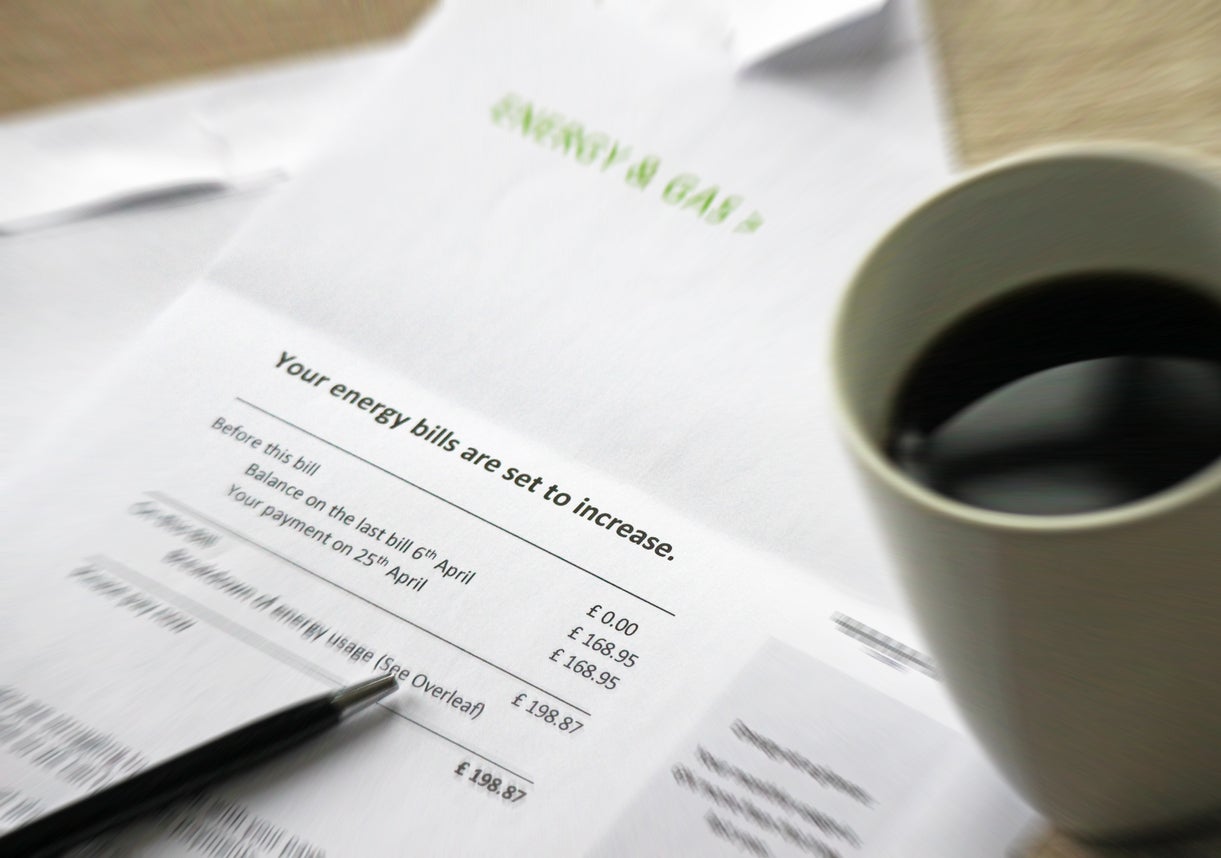The problem with freezing energy prices is the same as with Liz Truss’s tax cuts
Freezes, floated by Labour and Scottish Power’s CEO, would target the most support at wealthy high energy households, just like Truss’s unfunded tax cut proposals, argues James Moore


Want to know the main problem with all the energy crisis proposals currently doing the rounds? They’re back to front.
The surge in bills is hitting the poorest hardest but with the talk of a £3,500 cap coming later this week, and something like £5,000-plus on the way, the crisis is going to hit middle-income households hard too.
The probelm is that most of the proposals to address this deliver the most benefits to the rich, who are least in need of help. Liz Truss’s plan to reverse the recent rise in national insurance contributions has taken the most heat for this, and for obvious reasons. The Resolution Foundation says it would benefit the richest fifth of households twice as much in cash terms as the entire poorest half of households. It rather defines what’s becoming known as “Trussonomics”: help for the well-off at the expense of the poor, the public services and Britain’s public finances.
Thing is, that’s also true of the energy price freeze suggestion. Labour’s (very popular) six-month plan would, it says, be part funded by a windfall tax on oil and gas producers (also popular), part funded by folding in existing government plans, as well as lower inflation (and thus lower debt repayments). It is worth noting that Full Fact has still found grounds for questioning whether it really qualifies for the label “fully funded” but that’s not our focus here.
Another, still more ambitious and longer-term plan is a two-year freeze floated with business secretary Kwasi Kwarteng by Scottish Power CEO Keith Anderson, with a “deficit fund” set aside to cover the eye-popping £100bn cost, which would be repayable through (higher) bills over time and/or borrowing/taxation. That’s obviously a lot of deficit. One can only imagine the reaction of the Treasury, where Kwarteng will reportedly be next if Truss becomes PM.
However, the real problem with both is that, like the national insurance contribution cut, they allocate a significant slice of the vast funds required to the rich. Wealthier people have bigger homes and use much more energy. They can also more easily cope with higher bills, not to mention the other price rises Britain is experiencing. Food, for example. You can make a compelling case that the poorest need help with that too.
So the support offered by freezes is misdirected at best, even with a plan like Anderson’s, which the wealthy would presumably pay the most towards if it is funded by a levy on bills down the line.
Of course, targeted support can also bring issues. If you use the benefits system, you risk stranding people living just above the thresholds for help in deep trouble. People’s bills this winter, which is when around 80 per cent of domestic demand occurs, will be £2,000 ahead of last year on average. It isn’t just people on benefits for whom that sort of price hike will be unsustainable.
Part of the government’s current, already outdated, support package uses the council tax system as a method of means testing by offering a rebate to those in bands A to D. But this is a blunt stick. It is not a good way to go.
The valuations on which the banding system are based haven’t been revisited in years. As such, the Smiths, a low-to-middle income family renting a rundown band E property in outer London for them and their four kids, might lose out while the wealthy Joneses next door, who’ve added a loft conversion to the des res they’ve renovated for themselves and their single child, get the rebate.
Trouble is, we’re now running out of time to come up with a method of targeted help that reaches the people who really need it, while minimising outcomes like the one above. As well as being horribly complicated, means testing and taper systems can also get horribly expensive.
The answer to this dilemma is, of course, to claw the costs back through taxation. The Resolution Foundation, which is focused on improving living standards for those on low to middle incomes, this morning calls for a “solidarity tax” to do just that. It says a rise of 1 per cent to all income tax rates would see the large cost of a universal price reduction (£23.5bn) partially offset by a tax increase of £9.5bn.
Throw in some more windfall taxes and you’re almost, ding ding ding, fully funded. Some 60 per cent of the solidarity levy would be paid by the top fifth of households, which can most easily afford to shoulder the burden. There may, of course, be other fiscal means of achieving the same end. But the principle is very sound. And it has been done after previous crises. The Second World War, after which taxes rose, would be an example.
However, the proposal will probably go down like a cup of cold sick with the (expected) new prime minister, Liz Truss, who is already, according to one Michael Gove, taking a holiday from reality with her economic plans.
They may have to be updated because Truss is going to have to make a pitch to the wider electorate soon and it appears far more cognisant of the challenge Britain faces than she and her allies are. The same goes for her rival Rishi Sunak, and the Tories’ ageing hard right-wing membership.






Join our commenting forum
Join thought-provoking conversations, follow other Independent readers and see their replies
Comments